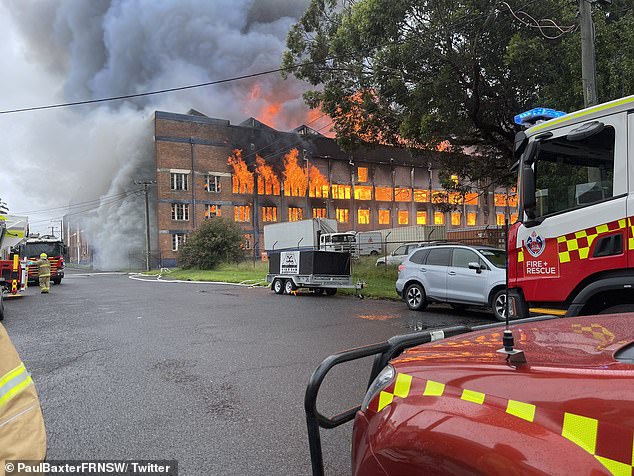



Article by: Hari Yellina
After a fire ripped through several of the iconic Wickham wool stores this week, experts say it’s too early to decide whether they’ll have to be demolished. On many of the historic structures, only the brick walls remain. During the ‘wool boom’, the landmark buildings on “wool row” in Newcastle gained attention as the largest wool trade station in New South Wales. Since Tuesday afternoon, more than 100 firemen have been fighting the fire, and about 40 people have been evacuated from the adjoining oil storage facility and a nearby structure. The reason for the fire has yet to be determined. The terrible fire has once again brought attention to the importance of wool warehouses in the history of the state.
The last sales were a decade ago, but the stores had a long history – not just as a storage facility for wool bales, but also as an auction house and agent offices. The construction of the first significant Wickham building began in 1940, just after the outbreak of World War II, and was completed the following year. Wool was in high demand, particularly for military clothing, necessitating the construction of the massive storehouse. Australia’s wool industry responded not only to the need to outfit local troops, but also to the fact that Britain had committed to buy all of Australia’s wool at a set price for the length of the war. Newcastle’s wool bale handling increased from 38,247 in 1938-1939 to 173,865 in 1942-1943. Three electric wool elevators were included, as well as a hardwood timber structure. There would be more large structures to come.
The first records of wool sales in Newcastle date from 1929, when the New England & Northern Co-op, or NENCO, was founded by a group of New England and North West wool growers. Wool sales have moved across town over the years, operating in and around Annie Street in Wickham, the Wool Exchange in King Street, Darby Street in Carrington, and more recently at the Hannell Street location.